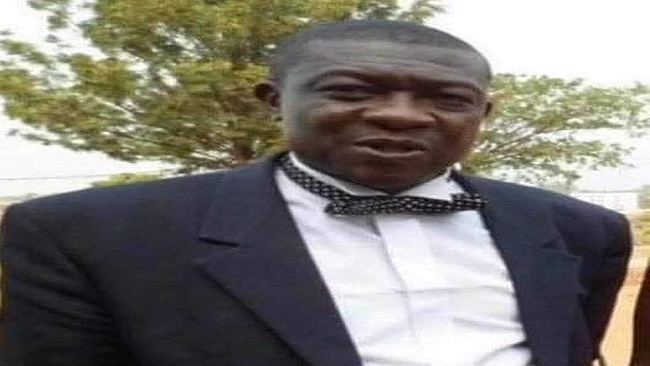Kingsley Njoka’s absurd 10-year prison sentence: ongoing persecution of Anglophone journalists
Barely a month after journalist Amadou Vamoulké was sentenced to 20 years in prison, freelance reporter Kingsley Fumunyuy Njoka, who has been in pre-trial detention for over four years, was sentenced to ten years in prison for “secession and complicity with armed gangs”. Reporters Without Borders (RSF) condemns the conviction and outrageous charges, which testify to the ongoing persecution of journalists in Cameroon’s English-speaking regions.
On 24 September, Cameroon suffered yet another attack on press freedom: freelance journalist Kingsley Fumunyuy Njoka was sentenced to ten years’ imprisonment by the Yaoundé military court for “secession and complicity with armed gangs”. His crime? Authoring reports published in 2020 on the armed conflict raging in the northwest of the country.
Arrested without a warrant on 15 May 2020 at his home in Douala, the country’s economic capital, by three members of the Bonabéri research brigade, Njoka has been held in pre-trial detention at the Kondengui Central Prison in the Yaoundé region ever since. Before his arrest, Njoka regularly published reports critical of the authorities, notably working for the English-language media outlet Canal 2 English on the “Anglophone crisis”, an armed conflict in the English-speaking zones of western Cameroon between the military and separatists that has claimed 6,000 lives since 2017.
One of Njoka’s lawyers, Amungwa Tanyi Nicodemus, a former journalist who worked with Njoka, told RSF this was an “unfair trial, in violation of Cameroonian laws and international law,” stressing that “the time limit for detention without trial, 18 months maximum in this kind of case, was not respected at all.” Nicodemus appealed against this conviction on 27 September.
“This is the second prison sentence for a journalist in less than a month — following that of Amadou Vamoulké — and illustrates how Cameroon is sinking deeper into its crackdown against the right to inform, which has been underway for several years. The case of Kingsley Njoka, who was illegally held in pre-trial detention for four years before being arbitrarily sentenced, reveals the fate awaiting journalists reporting on the Anglophone crisis. His situation is not unlike that of his colleague Samuel Wazizi, who was also arrested for covering the crisis and died in custody in 2019. Kingsley Njoka’s wrongful conviction on baseless charges must be overturned and he must be released immediately.”
Barely a month earlier, the former Director General of the Cameroon Radio and Television (CRTV), Amadou Vamoulké, was sentenced to 20 years of imprisonment for “embezzlement of public funds”, after 178 successive postponements of his trial. He had already been condemned to 12 years’ imprisonment for a similar case in December 2022, after more than seven years in pre-trial detention. He will therefore have to serve a total of 32 years in prison, which is inexcusable treatment of a journalist renowned for his professionalism and integrity.
Anglophone journalist Samuel Wazizi was also arrested and accused of complicity with secessionists in 2019. He died in custody under troubling conditions. According to the official statement, which was not given until ten months later, the journalist died due to illness a mere fifteen days after his arrest, despite being in perfect health – a story that is difficult to believe.
To date, four journalists have been unjustly convicted in Cameroon: Dimitri Wassouom Tchatchoua was sentenced to two years in prison in April 2023 for “publishing false information” electronically, and Thomas Awah Junior, correspondent in Cameroon’s northwest region for Afrik 2 Radio, was sentenced to 11 years in prison in 2018 for multiple charges, including “secession”, “insurrection”, “spreading false news”.
Cameroon ranks 130th out of 180 countries in the RSF’s 2024 World Press Freedom Index.
Culled from RSF




